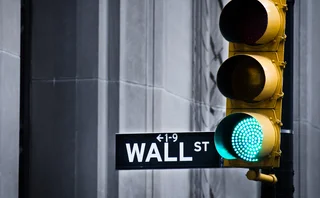
Credit default swap clearing house to miss deadline

The November 30 target for central clearing of index credit default swap (CDS) trades set by a consortium of industry associations and investment banks was unlikely to be met as Risk went to press.
The Operations Management Group (OMG), a collective of 16 banks and industry bodies including the International Swaps and Derivatives Association, the Managed Funds Association and the Securities Industry and Financial Markets Association, stated in an October 31 letter to Timothy Geithner, president of the Federal Reserve Bank of New York, that it anticipated "the implementation of a central counterparty in credit derivatives to be in place to clear index transactions commencing in November 2008".
On November 14, the OMG revealed that at least one central clearing counterparty (CCP) - proposed by the Chicago-based Clearing Corporation (CCorp) - was already in the advanced testing stages and would be operational just days after the November deadline.
"CCorp has been testing its credit derivatives clearing platform for the US CDS index for some time, with those tests set to conclude on November 17. The CCorp CCP will then go completely live on December 2, although we could see some level of operation before that," said a senior figure involved in the process.
A spokesperson for the IntercontinentalExchange, the Atlanta-based company that recently acquired CCorp, could not corroborate the dates but did confirm CCorp "expects to be trading index CDSs within a matter of weeks". Despite the readiness of such a CCP platform to go live, trades cannot commence without regulatory approval.
On November 14, the US President's Working Group on Financial Markets stated: "Relevant regulatory authorities are assessing these central counterparty proposals by conducting detailed onsite reviews of risk management and other key design elements. After completing the onsite reviews, regulators expect to proceed towards regulatory approvals and/or exemptions expeditiously and anticipate that one or more CDS central counterparties will commence operations before the end of 2008."
A source within the New York Fed confirmed to Risk that no regulatory approval has been given at this point and the end-November target would almost certainly not be met. The source went on to clarify that regulators will not endorse any of the competing CCP platforms explicitly but will leave the market to decide which clearing house will emerge as the industry's favoured choice for a central CDS hub.
Rival CCP platforms are under development by Frankfurt-based derivatives exchange Eurex, NYSE Euronext, and a joint venture between the Chicago Mercantile Exchange Group and Chicago-based hedge fund Citadel Investment Group. A spokesperson for the CME confirmed its CCP platform is also fully operational and is now merely awaiting regulatory approval.
Meanwhile, moves to develop a central clearing house for credit derivatives have persuaded the New York State Insurance Department (NYSID) to shelve plans to bring a slice of the CDS market under its purview next year.
On September 22, New York governor David Paterson announced a framework to regulate part of the CDS market using state insurance rules. Under the plans, which were set to come into effect from January 2009, CDSs bought to hedge a bond owned by the protection buyer would have been classified as insurance contracts and therefore subject to regulation. According to the NYSID's own figures, such trades constitute no more than 20% of the CDS market.
But regulating the CDS market required a "holistic solution", said Eric Dinallo, superintendent of the NYSID, speaking before the House Committee on Agriculture on November 20. "New York will delay indefinitely our plan to regulate part of this market," he added.
Instead, Dinallo praised a memorandum of understanding between the Federal Reserve, Securities and Exchange Commission and Commodity Futures Trading Commission aimed at strengthening infrastructure and oversight for the CDS market. Among other things, it establishes a framework for overseeing the development of a central CDS counterparty.
Dinallo said the NYSID would follow and assist the efforts of federal regulators in overseeing the market. It would also be prepared to "consider any necessary changes in state law to prevent problems that might arise from the fact some swaps are insurance", he said.
- Peter Madigan and Mark Pengelly.
See also:
Only users who have a paid subscription or are part of a corporate subscription are able to print or copy content.
To access these options, along with all other subscription benefits, please contact info@risk.net or view our subscription options here: http://subscriptions.risk.net/subscribe
You are currently unable to print this content. Please contact info@risk.net to find out more.
You are currently unable to copy this content. Please contact info@risk.net to find out more.
Copyright Infopro Digital Limited. All rights reserved.
You may share this content using our article tools. Printing this content is for the sole use of the Authorised User (named subscriber), as outlined in our terms and conditions - https://www.infopro-insight.com/terms-conditions/insight-subscriptions/
If you would like to purchase additional rights please email info@risk.net
Copyright Infopro Digital Limited. All rights reserved.
You may share this content using our article tools. Copying this content is for the sole use of the Authorised User (named subscriber), as outlined in our terms and conditions - https://www.infopro-insight.com/terms-conditions/insight-subscriptions/
If you would like to purchase additional rights please email info@risk.net
More on Credit markets
Liquidnet sees electronic future for grey bond trading
TP Icap’s grey market bond trading unit has more than doubled transactions in the first quarter of 2024
Single-name CDS trading bounces back
Volumes are up as Covid-driven support fuels opportunity for traders and investors
Podcast: Richard Martin on improving credit migration models
Star quant proposes a new model for predicting changes in bond ratings
CME to pass on Ice CDS administration charges
Clearing house to hike CDS index trade fees from July after Ice’s determinations committee takeover
Buy side fuels boom in single-name CDS clearing
Ice single-name CDS volumes double year on year following switch to semi-annual rolls
Ice to clear single-name bank CDSs from April 10
US participants will be able to start clearing CDSs referencing Ice clearing members
iHeart CDS saga sparks debate over credit rules
Trigger decision highlights product's weaknesses, warns Milbank’s Williams
TLAC-driven CDS index change tipped for September
UK and Swiss bank Holdco CDSs likely inclusions in next iTraxx index roll, say strategists







